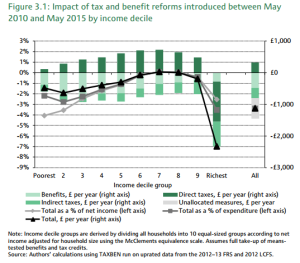Syriza swept to power in Greece last week, falling just 2 seats short of a majority after polling around 36%. 5 or 6 years ago, they were polling just 5%. The mainstream left party PASOC have gone the other way, polling over 40% on winning power in 2009, they polled less than 5% last week, a remarkable turnaround which shows just how fast things can change when countries are placed under severe economic stress.
Syriza now have a mandate to affect real change for the people of Greece. Whether they do, or even can within the confines of the Euro remains to be seen, but there have been some positive early signs. The appointment of ‘heterodox’ economist Yanis Varoufakis as finance minister is intriguing, and a central plank of Syriza’s platform is to do something to tackle the dire employment situation in Greece. Unemployment peak at oaround 28%, and remains at over 25%, while youth employment went as high as 60% in early 2013.
The New York Times reports on Syriza’s plan to use a direct public employment scheme to create 300,000 jobs. The program is due to be headed up by the deputy minister of Labour and Social Solidarity, Rania Antonopoulos, also a scholar at the Levy Institute of Bard College. Last year, she co-authored a paper on this issue entitled “Responding to the unemployment challenge: A job guarantee proposal for Greece”. It proposes the creation of jobs consisting of:
“…paid employment for 12 months per year on work project selected through a community-level consultative process from among the following areas: physical and informational public infrastructure; environmental interventions; social service provisioning; and educational and cultural enrichment. The positions would carry full legal labor rights, including normal time off. Eligibility would be extended to all of the unemployed,with a point system creating a rank order among applicants. Preference would be given to the long-term unemployed; those with low household income; members of households in which all adults are unemployed; and, finally, to workers according to the age composition of the unemployed, with the majority being over 30 years of age.”
The authors estimate that directly creating 300,000 jobs (at a minimum wage of 750 Euros a month) would create a further 120,000 private sector job indirectly through the multiplier effect, and although the net cost would be relatively high at around 1% of GDP, the act of creating the jobs would actually reduce the debt/GDP ratio, which is the supposed purpose of austerity, but which in fact has had the opposite effect.
If a policy like this could be implemented and successfully so, it would create a good example for the rest of Europe, and the whole continent is crying out for positive action on employment, including here. There are some who probably fear this good example, and so will try to prevent Greece’s experiment with democracy from being a success. It will be fascinating to see how the next few months play out.




